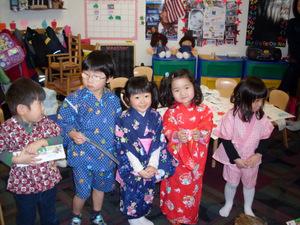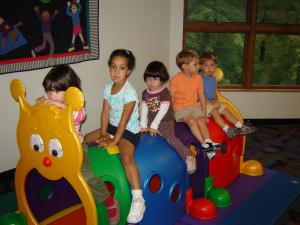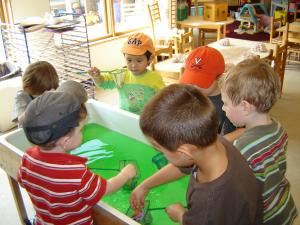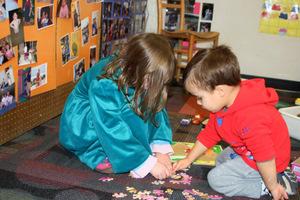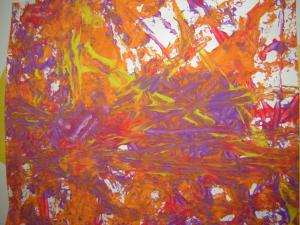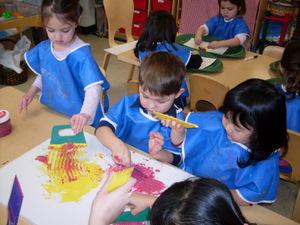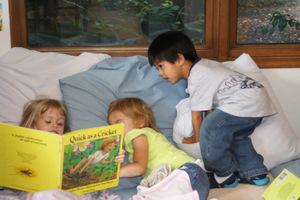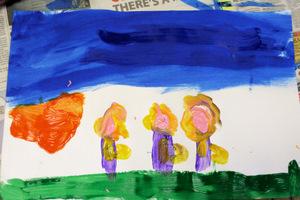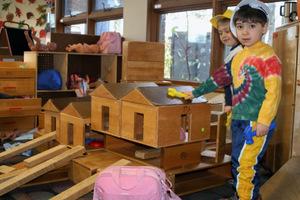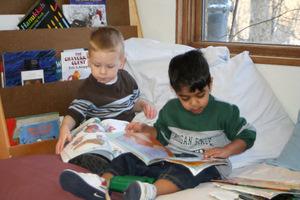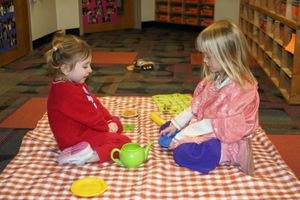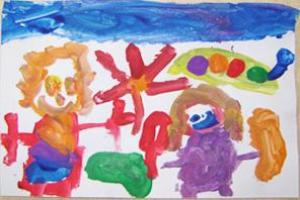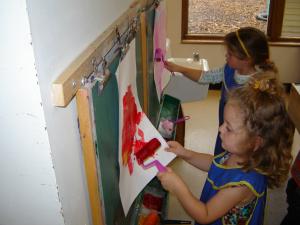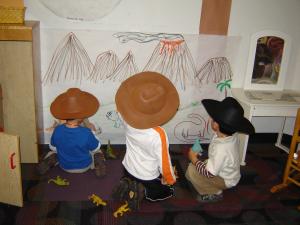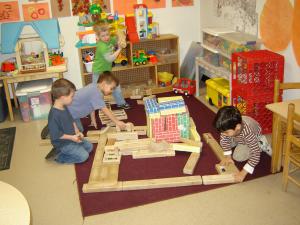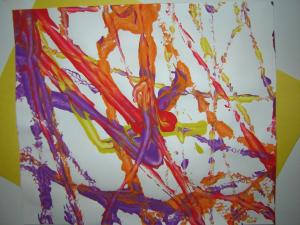Curriculum
The Discovery Center provides an environment that encourages each child to approach optimum physical, social, emotional, aesthetic, and intellectual growth. Our preschool and Young 5s Program in our Yellow Room are based on an open classroom approach with emphasis on a hands-on, experiential environment.
The classroom environment encourages each child to explore "discovery centers" set up by the staff and to participate in a full range of activities occurring throughout the day. The program is enhanced by outside specialists who provide Spanish, music, and story telling enrichment activities.
Our curriculum has been developed by our staff of professional educators to be consistent with the center’s philosophy. Some areas of the curriculum stressed by The Discovery Center are dramatic play, creative art, music, science and nature, math activities, stories and books, self-help skills, world awareness, communication skills, creative movement, social/emotional skills, and outdoor play. Within this framework, the staff works toward providing an optimum amount of attention, affection, stimulation, independence, novelty, and choice of activities for each child.
Assessment Plan Used by The Discovery Center
The Discovery Center has created and adapted its own assessment methods in keeping with best practices in early childhood development and the philosophy and curriculum developed for use in the program. The assessment plan incorporates skill lists, evaluation form checklists, observational checklists, and other tools that facilitate an informal gathering of information about each child. Each child has a "formal" conference form completed by a classroom teacher twice a year — once in the late fall, and once in the early spring. This information, along with goal setting and collaboration with parents, is an important part of The Discovery Center program.
Every day, teachers spend time observing the children in their classrooms as they actively engage in the daily schedule. This natural observation format allows the children to explore the curriculum freely and allows for all aspects of the child's day to be observed. The Discovery Center has one-way observation rooms that allow for non-interrupted classroom observation, a feature that is popular with parents and families. Observations can also be done directly in the classroom during the flow of the daily schedule.
Information for each child is gathered and assessed over a period of three to four months and the process then continues for the next three to four months with parent/teacher conferences following each assessment period. By concluding each assessment period with a parent/teacher conference, goal achievement, new goals, additional goals, and other aspects of a child's growth and development can be discussed among the adults in each child's school and home environments.
The conference forms developed and used by our program have the following content: Cognitive Skills, Communication Skills, Self-Help/Adaptive Skills, Gross Motor Skills, Social/Emotional Skills, and Fine Motor Skills. These are based on best practices, our curriculum, and our philosophy that all areas of a child's development are to be incorporated and respected. Each area of development is broken down into smaller, very specific skill sets. The following indicators are used to evaluate in each of these areas: Emerging, Progressing, and Mastered. There is also a separate area on the forms to discuss strengths and goals for each child based on his or her individual development and needs. If further assessment is needed, classroom teachers use the Ages and Stages Questionnaire (ASQ-3) Developmental Tool.
Classroom teachers meet for at least two hours per week to interpret and use assessment results in order to plan experiences that will align with the curriculum and their teaching practices. Portfolios are maintained for each child in order to have an ongoing, working knowledge of where children are in their development, where they have been, and where they are headed. This allows teachers to share information and examples easily with one another, parents, and (as necessary) outside professionals.

